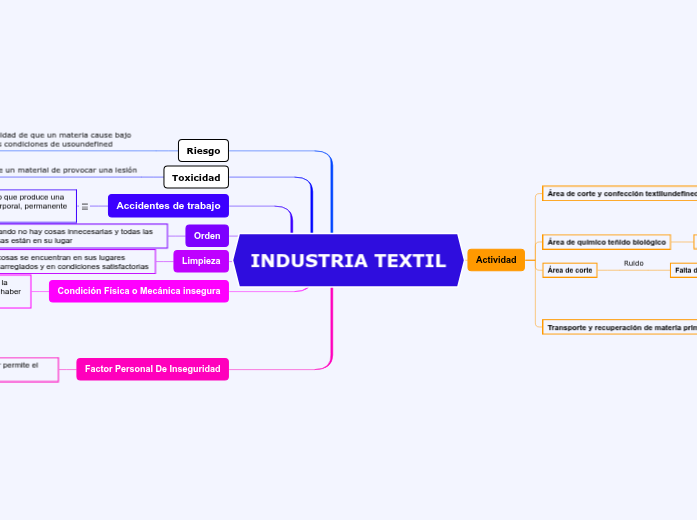av Josue Riofrio 4 år siden
3769
INDUSTRIA TEXTIL

av Josue Riofrio 4 år siden
3769

Mer som dette
The part of speech is a category to which a word is assigned according to its syntactic functions. In English the main parts of speech are noun, pronoun, adjective, determiner, verb, adverb, preposition, conjunction, and interjection.
A conjunction is a word like 'if' 'but' or 'and' which is used to connect sentences or clauses together.
Subordinating conjunctions are conjunctions that are used at the beginning of subordinate clauses. Some examples of these conjunctions are: although, after, before, because, how, if, once, since, so that, until, unless, when etc.
A preposition is one of the most exciting parts of grammar. A preposition is used to describe the location of something in relation to something else.
When a preposition consists of one word it is called single or simple preposition.
An interjection is used to express emotion in a sentence.
Think of other interjections!
An adverb is used to describe a verb, but it can also describe an adjective or another adverb.
Adverbs normally help paint a fuller picture by describing how something happens.
A numeral is a word or phrase that describes a numerical quantity.
Some theories of grammar use the word 'numeral' to refer to cardinal numbers that act as a determiner to specify the quantity of a noun, for example the 'two' in 'two hats'.
xx
A pronoun is a word that can be used in place of a noun, typically after the noun itself has already been stated.
Malas posturas
Levantamiento de peso de forma inadecuada
Lesiones en el cuerpo
Uso de cinturillas, fajas etc
Falta de protección y conocimiento
Pelusas
No usar protección
Alergias
Usar mascarillas, gafas
Maquina remochadora
Estres
Monotonía
Presión alta, Obesidad
Hacer pausas durante el horario de trabajo
Sobre carga del trabajo
Falta de protección
Sordera
Aislar las fuentes de ruido
Caldera
Relative pronouns are used to add more information to a sentence. Which, that, who (including whom and whose), and where are all relative pronouns.
Unlike demonstrative pronouns, which point out specific items, indefinite pronouns are used for non-specific things. This is the largest group of pronouns. All, some, any, several, anyone, nobody, each, both, few, either, none, one, and no one are the most common.
Tratamientos químicos como colorantes textiles
No usar protección adecuada
Intoxicación, dermatitis
Usar guantes, mascarillas, gafas y cremas protectoras
Maquina desmanchadora textil
The personal pronouns are I, you, he, she, it, we, they. More often than not (but certainly not always), they replace nouns representing people.
Possessive pronouns are used to show possession. The possessive pronouns are mine, yours, his, hers, ours, and theirs.
Cortes
No tener conocimiento del uso adecuado de la maquina
A reflexive pronoun ends with ...self or ...selves and refers to another noun or pronoun in the sentence (usually the subject of the sentence). The reflexive pronouns are myself, yourself, herself, himself, itself, ourselves, yourselves, and themselves.
Cortes profundos piel
Comprar maquinas seguras
Interrogative pronouns are used in questions. Although they are classified as pronouns, it is not easy to see how they replace nouns. Who, which, what, where, and how are all interrogative pronouns.
Maquinas remachadora
Golpes
Instalaciones inadecuadas
Demonstrative pronouns are used to demonstrate (or indicate). This, that, these, and those are all demonstrative pronouns.
Traumatismos
Comprar maquinas seguras que tengan el mercado CE
Reciprocal pronouns are used for actions or feelings that are reciprocated. The reciprocal pronouns are each other and one another.
Maquina de coser